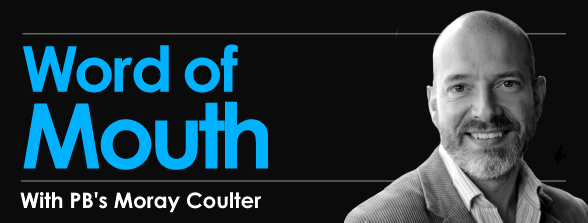
With the Sundance Film festival due to commence next week, Moray casts a hopeful eye over some of this year’s entries in an ever-changing documentary landscape.
“The Sundance Film Festival 2010 kicks off next week, the showcase of new dramas and documentaries that remind the US film industry why they went into the business in the first place. It’s also a reminder that there is more to aspire to as a British documentary maker than the patronage of a BBC or Channel Four commissioner.
Among the hundreds of films screened in and around the Festival, the “In Competition” section is where the action is. Only 1 per cent of films submitted to the competition make it to the final competition line-up, and those 58 successful competitors will be watched by every relevant studio producer and executive in the USA.
Two competition categories are exclusively for US-made films, but there are another 28 entrants in the World Cinema Documentary and World Cinema Narrative categories. In the latter category is Four Lions, the C4-backed movie that creator Chris Morris (Brass Eye, Nathan Barley) promises will do for radical Islamist terrorists “what Dad’s Army did for the Home Guard”. But my attention is caught by the two British film-makers Lucy Walker and Rob Lemkin whose works are in the World Docs category.
Co-director / producer Rob Lemkin’s film Enemies Of The People draws on personal testimony to get to the heart of the Khmer Rouge and why its adherents turned to genocide. Made to high standards by Lemkin’s own production company Old Street Films, it doesn’t fly the flag of any British broadcaster. Instead its key production funding came from the Gucci Tribeca Documentary Fund and the Sundance Documentary Fund which each support feature-length films which could appeal to an American audience, could support a theatrical or festival screening run, and that fundamentally air issues of social importance. Kevin Macdonald’s harrowing “One Day In September” was a high-profile British beneficiary of the SDF.
This is the second foray to Sundance for Lucy Walker. She’s the British director of Waste Land, documenting an artist working in the world’s largest landfill in Brazil. Walker’s sights are focussed far beyond the UK. She’s an NYU film school post-graduate, and her three feature films to date have been filmed in the US, Brazil and Tibet. Waste Land’s executive producers were the director and co-producer of feature film City of God.
This is just a glimpse of the scope of documentary production far beyond UK broadcast television. The BRITDOC Foundation has repositioned itself to support meaningful documentary production across as wide a field as possible, looking at working with brands, charities, online platforms, and any other medium which will benefit from good documentary production. BRITDOC is a good starting point for any doc-maker who feels constrained and undervalued by the TV industry.
Within Europe alone, the scope of documentary production makes the UK TV industry feel like a parochial backwater. Check out the range of productions fielded every year at the Amsterdam Documentary Festival and the potential for finding development and production funding there. The European Documentary Network is a useful key to unlock the considerable resources and help available to factual film-makers across the continent.
You are probably fully aware of the ongoing changes in the world of factual television production, and that sometimes it looks like a story of ever-shrinking budgets, smaller audiences, constricting formats, and fewer slots which in turn, restricts the broadcast training ground for new programme-makers. All that taken into account, I hope that there is a glorious future for British docs with good funding and audiences that care about what they are watching, but the days of making them primarily for British broadcast television may be at an end.”